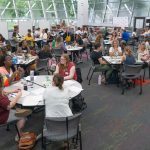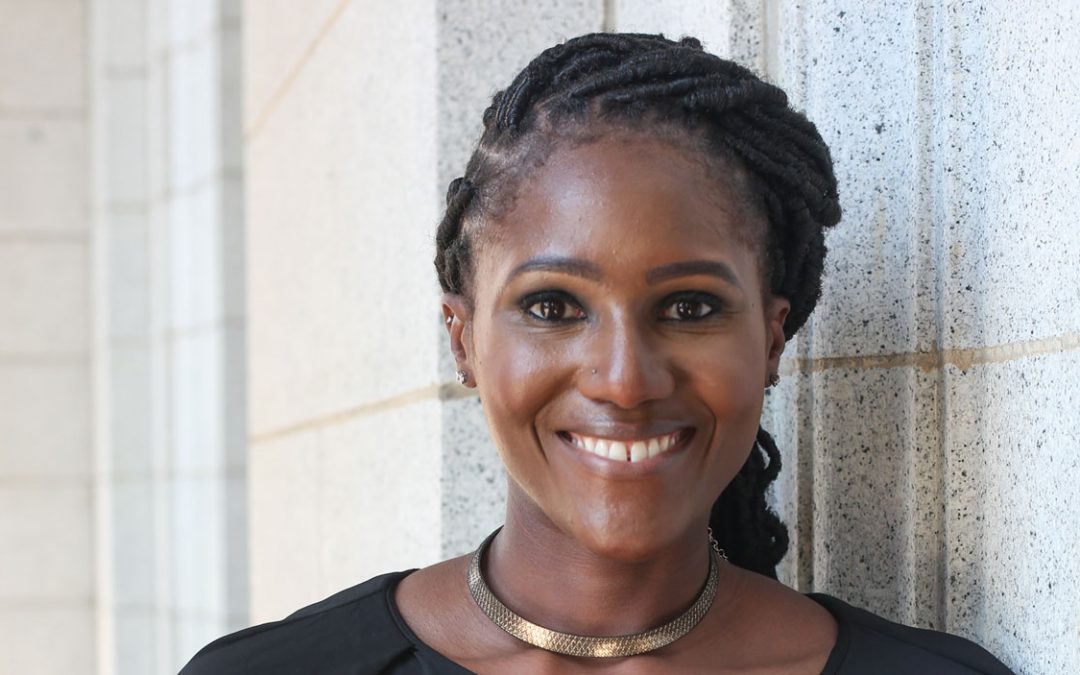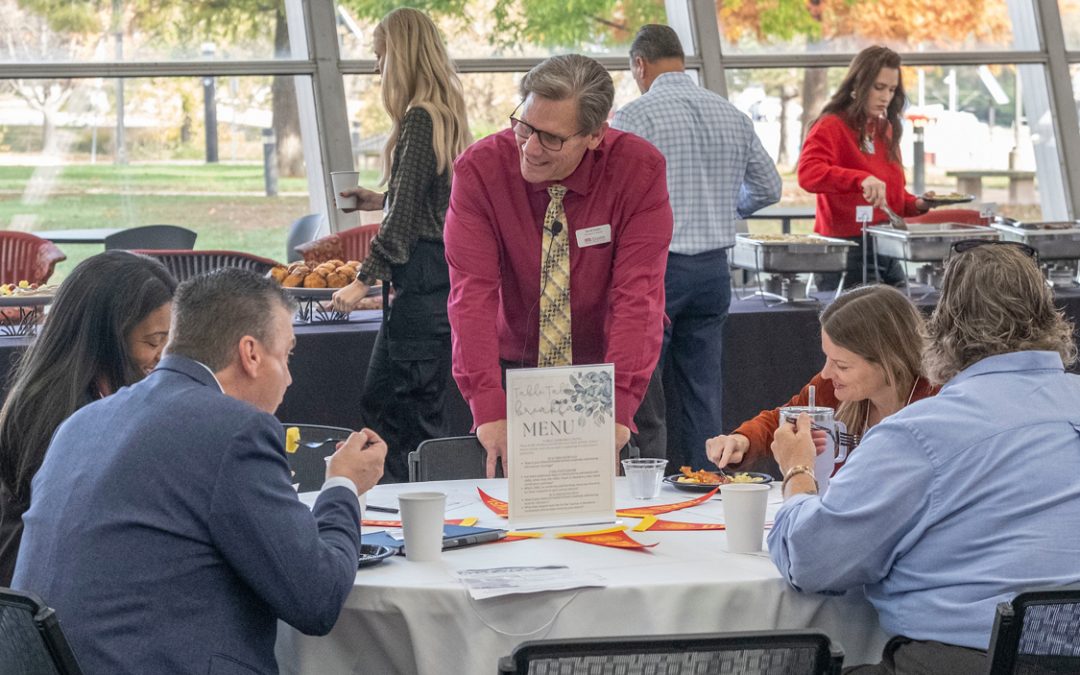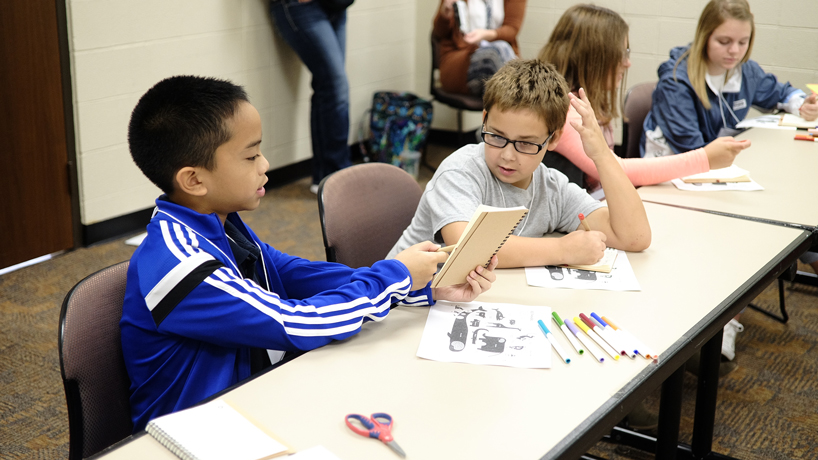
Students from third through eighth grade explored multiple genres and topics and were encouraged to share their writing with their peers. (Photos by Jami Hirsch)
“I need five more syllables for my haiku,” one third-grade student declared from a classroom on the fourth floor of the J.C. Penney Conference Center last Thursday.
While 9-year-olds aren’t typically the ones composing poetry on university campuses, this particular student, along with more than 140 of his elementary and middle-school-age peers, had the chance to do that and more at the University of Missouri–St. Louis on Oct. 20.
The opportunity came thanks to the Youth Writing Festival, a biannual event sponsored every fall and spring by UMSL’s Gateway Writing Project in collaboration with the College of Education. GWP is an organization that, since 1978, has sought to strengthen both the teaching and learning of writing across the entire St. Louis region.
Last week’s festivities boasted the extra component of coinciding with the National Day on Writing – an officially recognized day co-sponsored by GWP’s parent organization, the National Writing Project. Youth Writing Festival students joined in on the national activities by creating a visually stunning collection of social-media-sharable speech bubbles that centered around the hashtag #WhyIWrite.
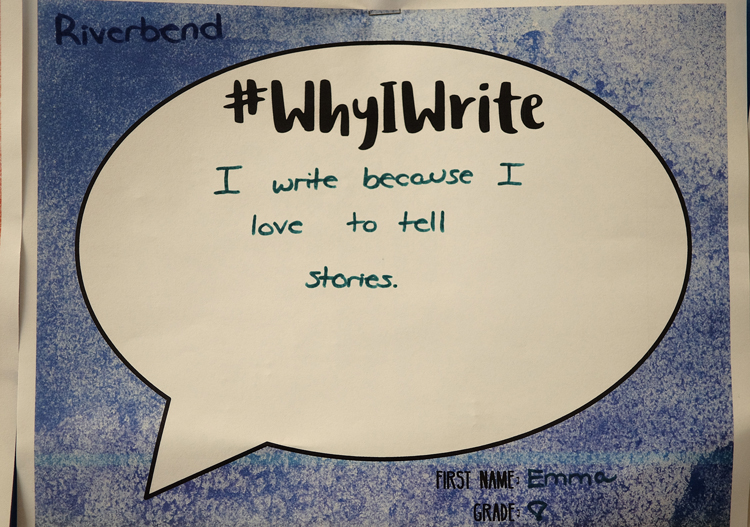
The students’ reasons for writing covered an entire wall in the conference center. Many alluded to the development of authority, self esteem and freedom via the power of imagination.
Set up much like a grown-up business or academic conference, albeit with much more fun added in, the festival drew students and teachers from a wide range of St. Louis-area public, charter and private schools. The students participated in break-out sessions that focused on a variety of different types of writing – many that students may not have exposure to in their daily classroom experiences.
This year’s session topics included an investigation of the text behind political ad campaigns, explorations of character creation, free verse poetry and memory mapping to name only a few.
“The festival gives youth writers an opportunity to play with words and style, develop voice and craft, and write about topics and issues of their choosing,” said GWP co-director Katie O’Daniels. “It is a fun day that we hope goes a long way toward helping students see themselves as writers who are empowered to stand out and speak up with their writing.”
The haiku-pondering student was a member of one of Sunrise R-IX teacher Tracy Brosch’s sessions. Brosch had her students focus on creating “listicles” – a style of writing that many people associate with websites like BuzzFeed but has now become prominent across multiple publications and platforms.
Her students combined elements of both graphic design and written text as their self-chosen topics ranged from “17 ways to make someone laugh” to “5 worst fears” and “5 ways to eat noodles.”
Brosch says she became involved in the festival after attending the GWP’s Summer Institute, an intensive six-credit-hour cornerstone of UMSL’s educator preparation efforts that’s offered annually to current writing teachers and Master of Education students alike. The institute strengthens writing teachers’ own writing and pedagogical abilities and expertise while also providing an in-depth chance to reflect on why writing is so vital for students across any curriculum.
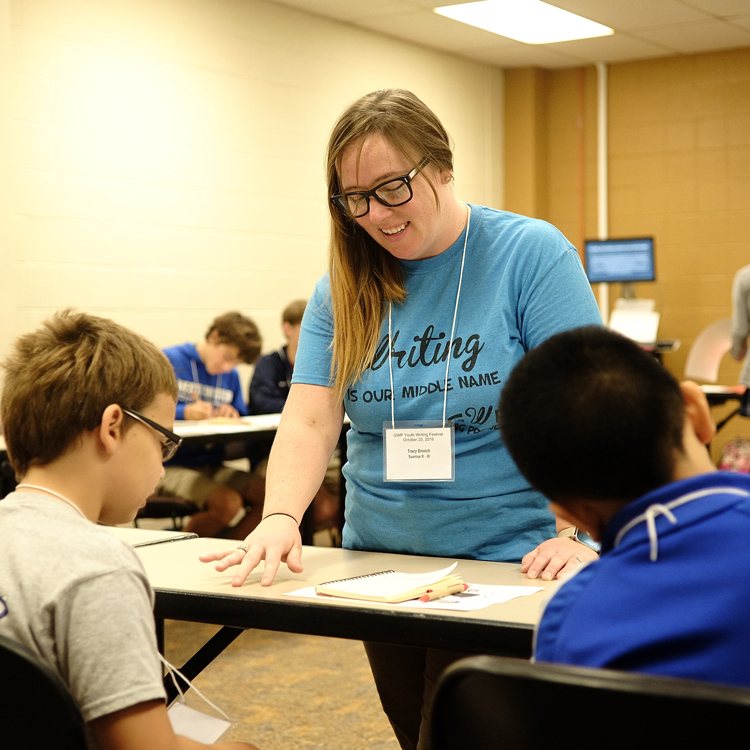
Tracy Brosch, who teaches in Desoto, Missouri, led a session titled “Listicles, Infographics and Writing…Oh my!”
“I teach writing because I believe it is vital to life and education. We, of course, need it in education and to thrive in society, but we also need it to express, learn and grow as human beings,” Brosch said. “I love the festival because it lets students see what writing looks like outside of their classroom experience. I hope it opens them to new possibilities in writing and that they begin to value their writing.”
Writing outside of the classroom was modeled to the festival students in a brand new way this year by special guest Bisa Adero, who was just recently named St. Louis’ first youth poet laureate.
Adero, who is a student at Grand Center Arts Academy, read a sampling of her poetry for the younger crowd and took questions from the audience related to where she draws her inspiration, how she finds time to write and what she believes writing does for her individually, as well as for the community at large.
“You’d be surprised where your ideas can take you,” she said. “You just never know. All of a sudden, your ideas could even change the world.”
Such positive energy – indeed a theme of the intrinsic power and freedom within writing – ran throughout the course of the day and likely won’t stop now that the festival has concluded. GWP has plans to host an online publishing venue where students can share the writing they began working on at the festival.








